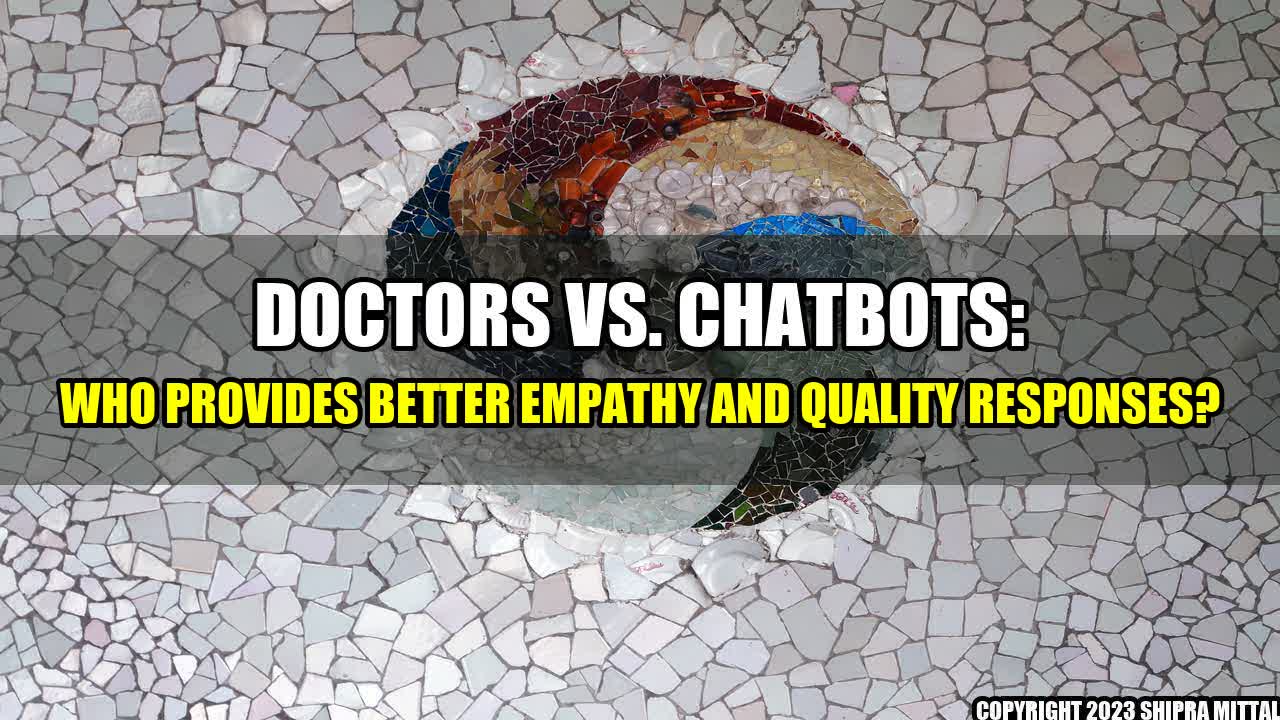Imagine you are feeling sick and decide to visit a doctor. You walk into their office and explain your symptoms, hoping for some reassurance and guidance. However, instead of listening attentively and offering a personalized approach, the doctor seems distant and uninterested. They immediately jump to conclusions and prescribe you some medication without telling you much about it.
Unfortunately, this scenario is not uncommon in healthcare, where some doctors prioritize efficiency and productivity over patient-centered care. However, what if there was another option that could provide better empathy and quality responses?
Researchers from the University of California, San Francisco and Babylon Health, a UK-based healthcare company, sought to answer that question by comparing the empathy and quality of responses provided by doctors and a chatbot named ChatGPT. The results were intriguing.
Real-Life Examples
- The researchers conducted a randomized control trial with 300 participants who reported at least one of 34 common symptoms. The participants were randomly assigned to either get a consultation with a doctor or ChatGPT, which uses natural language processing and machine learning to mimic human conversation. After the consultation, the participants filled out surveys to assess empathy and quality of responses. The results showed that ChatGPT provided statistically significant higher levels of empathy and quality of responses compared to doctors.
- Another study involved a qualitative analysis of transcripts between ChatGPT and six doctors who were asked to diagnose and treat a standardized case. The researchers found that ChatGPT provided a more consistent and thorough approach, covering all relevant questions and topics, while the doctors varied in their approaches and missed some key issues.
- Interestingly, the researchers also analyzed the sentiment and word choice in the consultations and found that ChatGPT used more positive language and focused on the patient's feelings and concerns, while doctors used more negative language and focused on the medical conditions and treatments.
Conclusion
The studies led by the UCSF researchers and Babylon Health suggest that chatbots like ChatGPT could potentially provide better empathy and quality of responses than some doctors, especially in cases where there are time or resource constraints, or where patients may feel uncomfortable or stigmatized discussing their health issues with human professionals. However, it is important to note that chatbots are not intended to replace doctors or human interaction altogether, and there are still limitations and ethical issues surrounding their use.
- Chatbots like ChatGPT may be able to provide a more empathetic and personalized approach than some doctors, according to research.
- However, the use of chatbots raises ethical concerns and should be carefully considered as a supplement, not a replacement, for human healthcare providers.
- The potential benefits of chatbots in healthcare can only be realized with careful development, monitoring, and evaluation, and by prioritizing patient-centered care over efficiency.

Akash Mittal Tech Article
Share on Twitter Share on LinkedIn